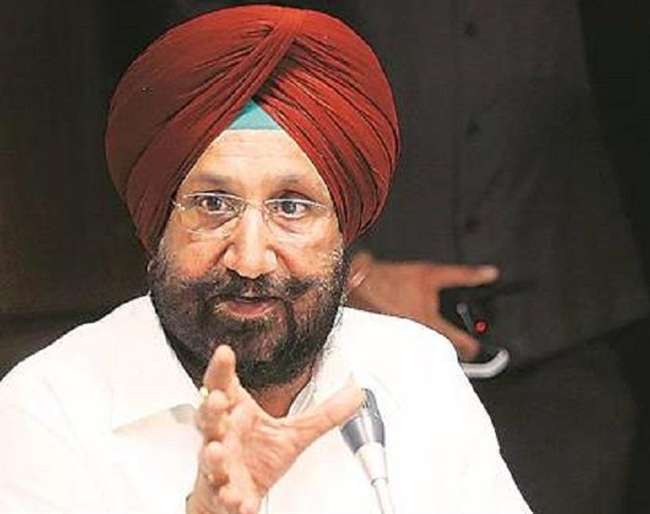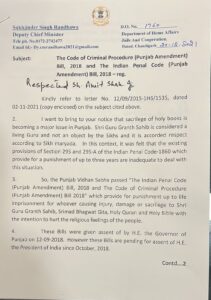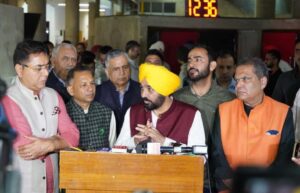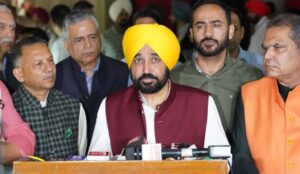RANDHAWA DEMANDS NOD TO PUNJAB GOVERNMENT BILLS FOR ENSURING STRINGENT PUNISHMENT TO SACRILEGE PERPETRATORS

· DEPUTY CHIEF MINISTER WRITES TO UNION HOME MINISTER AMIT SHAH
Chandigarh, 20 December 2021 : The Deputy Chief Minister, Punjab, S. Sukhjinder Singh Randhawa, who also holds the Home Portfolio, has urged the Union Government to give nod to The Code of Criminal Procedure (Punjab Amendment) Bill, 2018 and The Indian Penal Code (Punjab Amendment) Bill, 2018 in order to ensure stringent punishment to those perpetrating the heinous crime of sacrilege of holy books.
In his letter written to the Union Home Minister Amit Shah, the Deputy Chief Minister wrote “I want to bring to your notice that sacrilege of holy books is becoming a major issue in Punjab. Shri Guru Granth Sahib is considered a living Guru and not an object by the Sikhs and it is accorded respect according to Sikh maryada. In this context, it was felt that the existing provisions of Section 295 and 295-A of the Indian Penal Code-1860 which provide for a punishment of up to three years are inadequate to deal with this situation.


So, the Punjab Vidhan Sabha passed “The Indian Penal Code (Punjab Amendment) Bill, 2018 and The Code of Criminal Procedure (Punjab Amendment) Bill 2018” which provide for punishment up to life imprisonment for whoever causing injury, damage or sacrilege to Shri Guru Granth Sahib, Srimad Bhagwat Gita, Holy Quran and Holy Bible with the intention to hurt the religious feelings of the people.”
The letter further states, “These Bills were given assent of by H.E. the Governor of Punjab on 12-09-2018. However these Bills are pending for assent of H.E. the President of India since October, 2018.Punjab being a border State, it is extremely necessary to maintain communal harmony here. For this, deterrent punishment is a must for those trying to disturb communal harmony by indulging in the sacrileges. So, I again request that the Presidential assent for the said Bills may kindly be obtained and conveyed to the State Government, at the earliest possible.”



